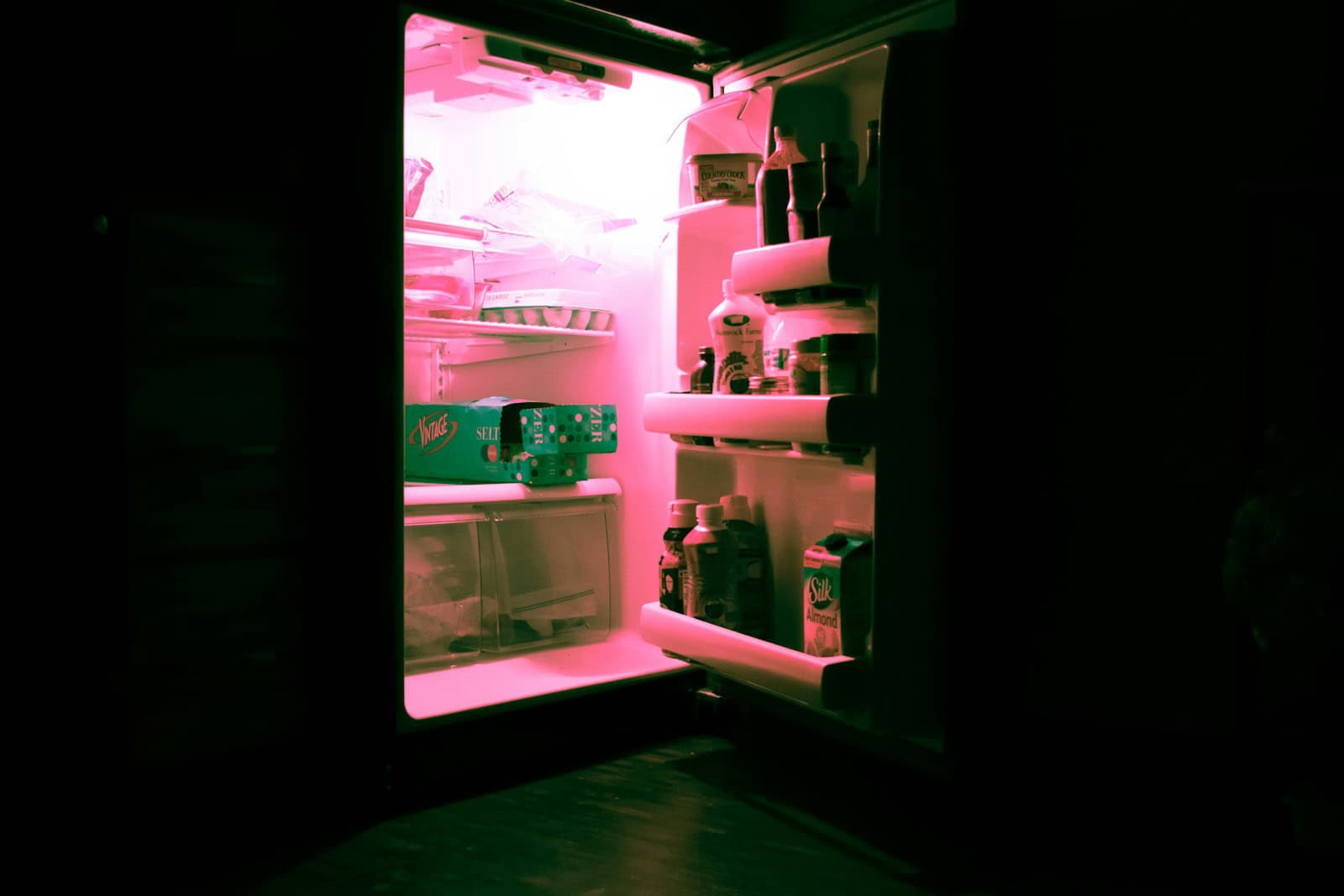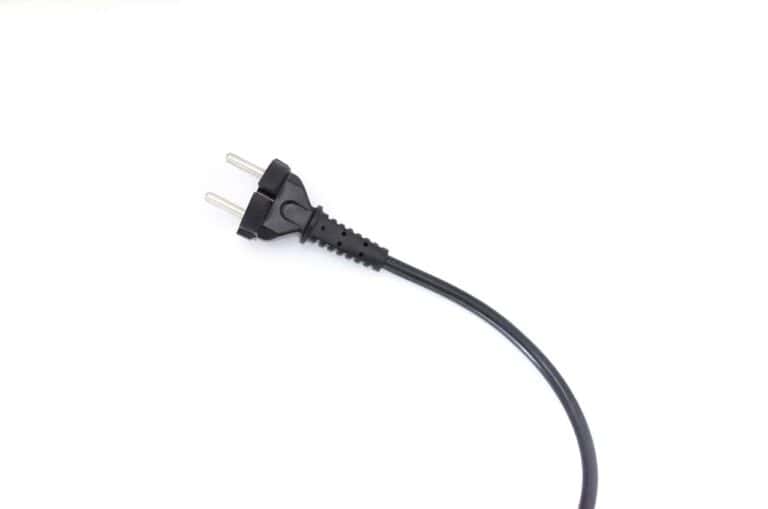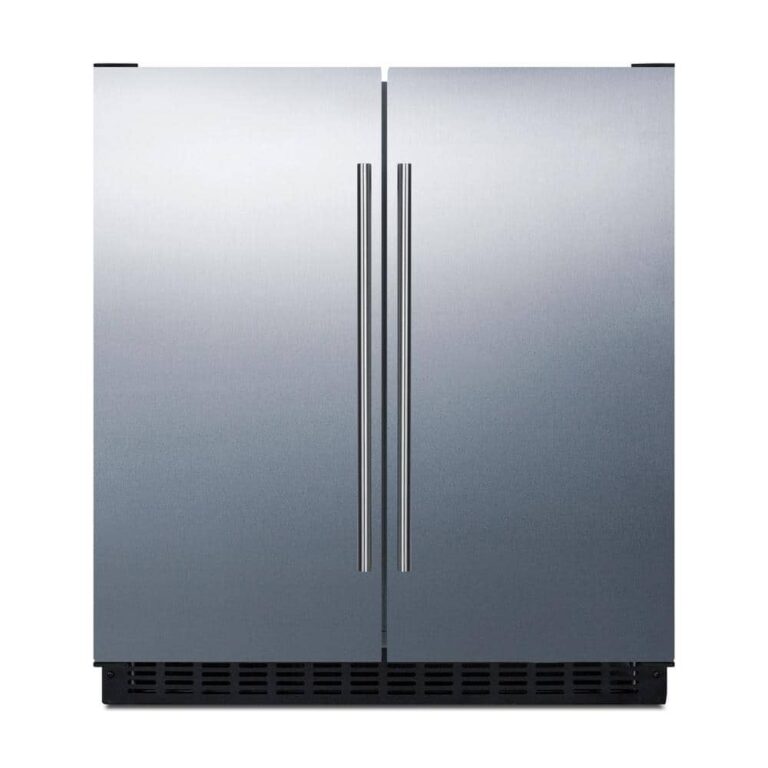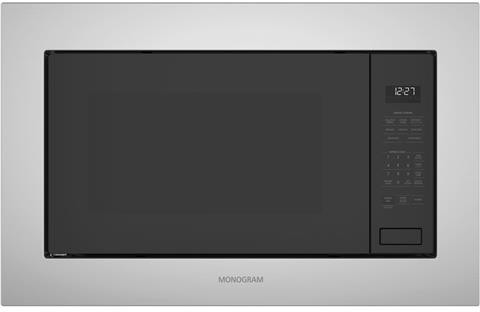
Unplugging a refrigerator for a four-month absence can save energy and reduce electricity bills. The decision to unplug depends on factors like food contents, potential risks, and alternative options. Homeowners should weigh these considerations carefully before making a choice.
Leaving a refrigerator running during a long absence has both advantages and drawbacks. It maintains temperature control and prevents mold growth. However, it continues to consume electricity, which may be wasteful if the appliance is empty.
Proper preparation is crucial if unplugging is the chosen course of action. This includes removing all food items, defrosting, and thorough cleaning. Taking these steps helps prevent odors and mold growth during the extended period of disuse.
Properly Storing Your Refrigerator for Extended Periods
Cleaning is Key
Before you even think about turning it off, give your refrigerator a good cleaning. Take everything out. Wipe down all the shelves and walls with warm, soapy water. Don’t forget the drawers and door seals. This gets rid of food spills and smells that can get worse over time. A clean fridge is less likely to have mold or mildew later.
Defrosting the Freezer
If your fridge has a freezer, you must defrost it. Unplug the refrigerator. Let the ice melt completely. You can put towels down to soak up the water. Don’t use sharp objects to chip away the ice; you could damage the freezer. Once it’s defrosted, wipe it dry. This stops ice from building up while it’s off.
Baking Soda to the Rescue
To keep smells away, put an open box of baking soda inside the fridge and freezer. Baking soda absorbs odors. This simple step can make a big difference when you turn it back on months later. You can also use charcoal or coffee grounds as alternatives.
Propping the Doors Open
This is important: don’t close the doors completely. Prop them open a little. This lets air circulate and prevents mold and mildew from growing inside. You can use a rolled-up towel or a piece of wood to keep the doors ajar. Just make sure nothing can fall and close the doors by accident.
Unplugging and Cord Care
Unplug the refrigerator from the wall. Don’t just turn it off; unplug it. This saves energy and is safer. Once unplugged, clean the cord and wrap it loosely. You can tape it to the back of the fridge so it doesn’t get in the way.
Storage Location Matters
If you’re storing the fridge in a garage or basement, make sure it’s in a dry place. Cover it with a clean sheet or blanket to protect it from dust. Don’t wrap it in plastic; this can trap moisture. Keep it away from direct sunlight or heat sources. This protects the finish and internal parts.
Summary of Steps
| Step | Action |
|---|---|
| 1 | Clean the entire refrigerator. |
| 2 | Defrost the freezer completely. |
| 3 | Place an open box of baking soda inside. |
| 4 | Prop the doors open. |
| 5 | Unplug the refrigerator. |
| 6 | Store it in a dry, safe place. |
Key Takeaways
- Unplugging can save energy but requires careful preparation and consideration of risks
- Leaving the refrigerator on maintains temperature control but consumes electricity
- Alternative solutions like adjusting temperature settings can balance efficiency and safety
Understanding the Impacts of Long-Term Power Disconnection
To prevent damage and unpleasant odors when leaving a refrigerator unused for an extended period, it’s important to take careful preparation steps beyond just turning it off. This includes thorough cleaning and proper storage to keep the appliance in good working condition for future use. Taking these preventative measures can save time and money by avoiding costly repairs or replacements.
Unplugging a refrigerator for four months can have significant effects. Energy conservation is a primary benefit, as refrigerators consume substantial electricity. This can lead to noticeable savings on utility bills.
Food safety becomes a critical concern during extended power disconnection. Without proper cooling, perishables spoil rapidly. Bacteria growth accelerates in warm environments, potentially causing foodborne illnesses if consumed later.
Mold growth is another risk when refrigerators are left unplugged. Moisture trapped inside creates ideal conditions for mold to thrive. This can lead to unpleasant odors and potential health hazards.
To mitigate these issues:
- Remove all food items before unplugging
- Clean and dry the interior thoroughly
- Leave doors slightly open to prevent odors
Energy efficiency may be impacted upon reconnection. Refrigerators work harder initially to reach optimal temperatures, temporarily increasing power consumption.
Long-term disconnection can affect the compressor’s performance. Lubricants may settle, potentially causing issues when restarting. It’s advisable to let the refrigerator stand upright for several hours before plugging it back in.
Considering these factors, homeowners must weigh the energy savings against potential risks and maintenance needs when deciding to unplug a refrigerator for extended periods.
Preparation Steps Before Unplugging Your Refrigerator
Properly preparing a refrigerator for long-term unplugging involves thorough cleaning and securing the appliance. These steps help prevent mold growth and odors while ensuring the fridge remains in good condition during the extended period of disuse.
Cleaning and Emptying the Refrigerator
Removing all food items is the first crucial step. This includes perishables, condiments, and any items in the freezer compartment. Discarding spoiled food prevents unpleasant odors and potential health hazards.
Next, users should clean all interior surfaces with a mild soap solution or a mixture of baking soda and water. This eliminates bacteria and residual odors. Shelves, drawers, and ice trays should be removed and washed separately.
After cleaning, it’s essential to dry all surfaces thoroughly. Moisture left behind can lead to mold growth. Using a clean, lint-free cloth helps ensure a completely dry interior.
Securing the Appliance
Propping the refrigerator doors open is crucial for air circulation. This prevents mold and mildew growth inside the appliance. Small wooden blocks or clothespins can keep the doors ajar.
Users should clean the refrigerator coils and vacuum the area around the appliance. This improves efficiency when the fridge is plugged back in.
Placing an open box of baking soda inside the refrigerator absorbs any lingering odors. For added freshness, cotton balls soaked in vanilla extract can be placed inside.
Finally, covering the appliance with a breathable cloth protects it from dust while allowing air to circulate. This keeps the refrigerator clean and ready for use upon return.
Evaluating Cost Savings Versus Potential Risks
Unplugging a refrigerator for four months can lead to energy savings. A typical refrigerator consumes between 100-250 kWh per month. This translates to potential savings of $40-$100 over four months, depending on local electricity rates.
However, these savings must be weighed against potential risks:
- Mold growth
- Unpleasant odors
- Damage to the refrigerator’s components
Temperature fluctuations can affect the refrigerator’s performance when restarted. This may lead to increased energy consumption or even costly repairs.
Power outages pose another consideration. An unplugged fridge won’t be affected, but a plugged-in unit might suffer from sudden shutdowns and restarts.
Here’s a quick comparison:
| Pros | Cons |
|---|---|
| Energy savings | Potential mold growth |
| Reduced wear on components | Risk of odors |
| No impact from power outages | Possible damage to seals |
For shorter absences, leaving the refrigerator running on a higher temperature setting might be a better option. This balances energy savings with reduced risks.
Ultimately, the decision depends on individual circumstances. Homeowners should consider the age and condition of their refrigerator, local climate, and expected energy costs.
Alternative Solutions for Efficiency and Safety
Leaving a refrigerator unplugged for four months can pose challenges. Here are some alternatives to consider:
Temperature adjustment: Set the fridge to a higher temperature. This reduces energy consumption while maintaining some cooling.
Vacation mode: Many modern refrigerators have a built-in vacation mode. It keeps the freezer running but reduces cooling in the main compartment.
Mini-fridge: For long absences, use a small refrigerator. It consumes less energy and can store essential items.
Coolers or ice boxes: These non-electric options can keep food cold for short periods. They’re useful for storing items temporarily before departure.
Food storage alternatives: Consider canning, dehydrating, or freeze-drying perishables. These methods preserve food without refrigeration.
Smart plugs: Use a smart plug to control the refrigerator remotely. This allows turning it on before returning home.
Automated defrosting: Schedule defrosting cycles to prevent ice buildup and maintain efficiency.
Humidity control: Place moisture-absorbing products in the fridge to prevent mold growth.
These solutions offer a balance between energy savings and food safety. They help maintain temperature stability and reduce the risk of spoilage. Choose the option that best fits your specific situation and appliance capabilities.
Frequently Asked Questions
Unplugging a refrigerator for extended periods raises several important questions. Proper handling and precautions are crucial to avoid potential damage and ensure safe operation upon return.
How long can you leave a refrigerator turned off without causing damage?
Most refrigerators can be safely turned off for up to 4 months without significant risk of damage. The key is proper preparation before shutting it down. Clean the interior thoroughly and leave the doors open to prevent mold growth.
Is it safe to unplug a refrigerator for an extended period such as one year?
Unplugging a refrigerator for a full year is not recommended. Extended disuse can lead to seal deterioration, compressor issues, and potential mold growth. If necessary, professional maintenance is advised before restarting after such a long period.
What are the potential risks of turning off a refrigerator for multiple months?
Risks include mold and mildew growth, seal damage, and compressor problems. Stale odors may develop. The refrigerant might settle, potentially causing issues when restarting. These risks increase with longer periods of disuse.
What precautions should be taken when unplugging a refrigerator for a two-week vacation?
For a two-week absence, it’s often better to keep the refrigerator running. If unplugging, remove all food, clean thoroughly, and prop the doors open. Place baking soda inside to absorb odors. Ensure the refrigerator is in a well-ventilated area.
What effects does regularly switching off a refrigerator at night have on the appliance?
Nightly shutoffs are not advisable. This practice can strain the compressor and increase energy consumption. Refrigerators are designed for continuous operation. Frequent on-off cycles may shorten the appliance’s lifespan.
How does extended disuse affect a refrigerator, and is it safe to do so?
Extended disuse can lead to seal degradation, lubricant settling in the compressor, and potential electrical component issues. While short periods (1-4 months) are generally safe with proper preparation, longer periods may require professional inspection before reuse.






